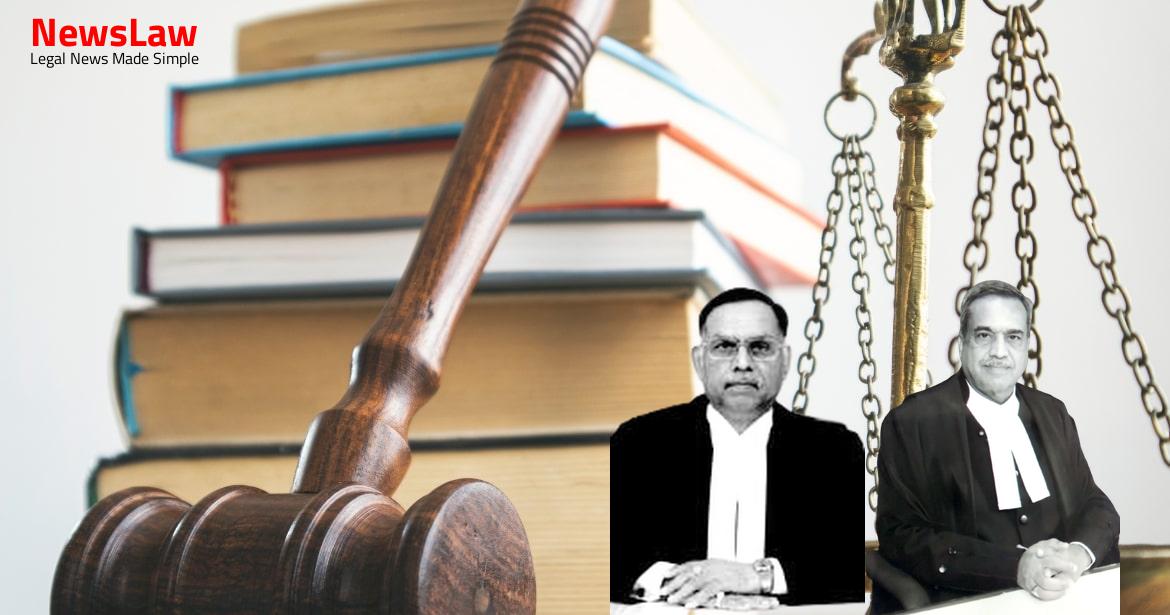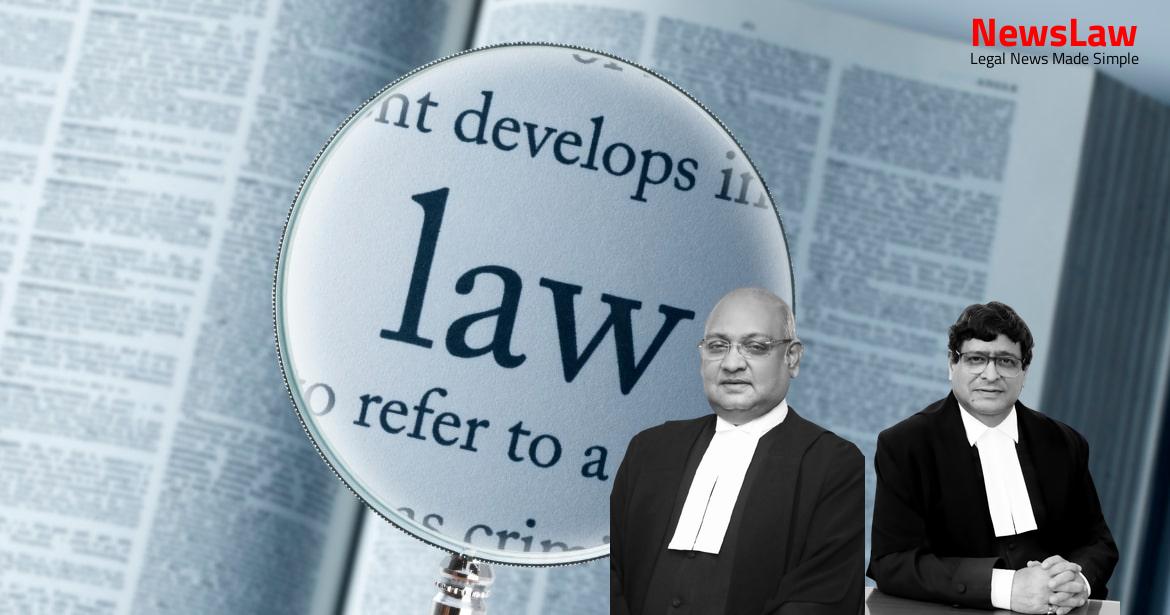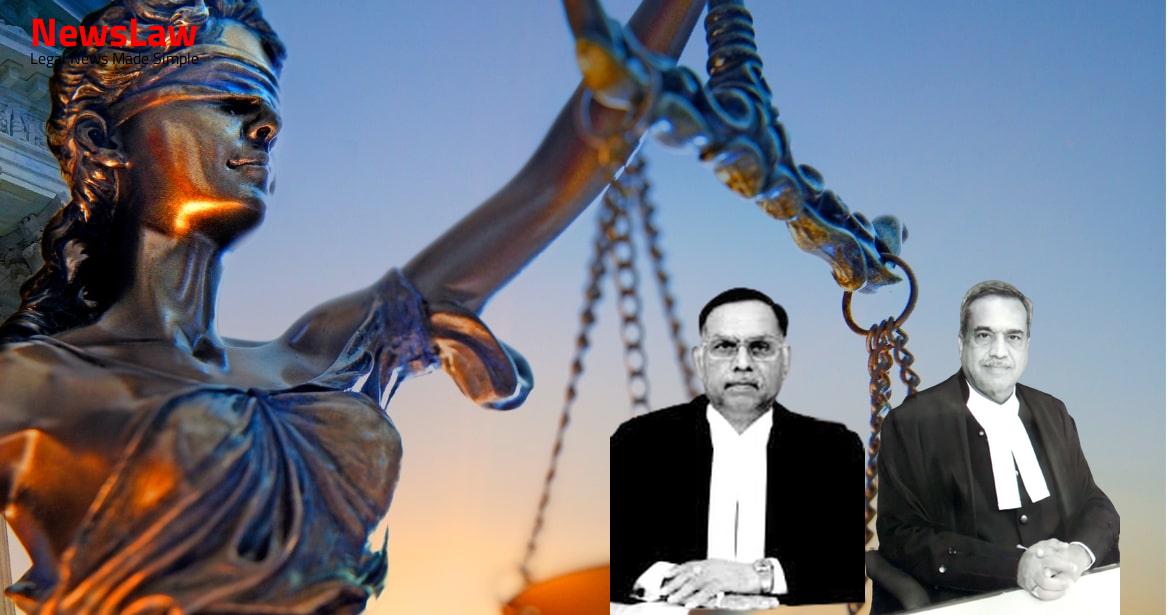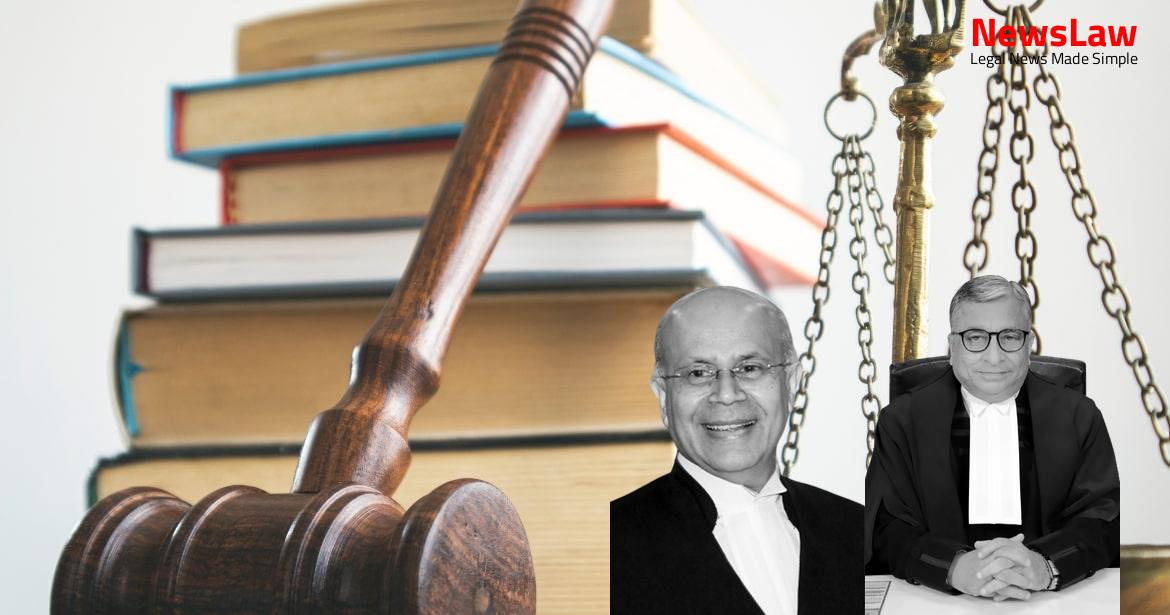In the case of Gopal Prasad v. Kejriwal Films, the High Court recently dismissed the quashing petition and refused to quash the criminal proceedings initiated by Gopal Prasad against the partner of Kejriwal Films. The appellant, feeling aggrieved by the judgment, has now filed an appeal against the High Court’s decision. The legal battle involves complex allegations and a dispute between parties, with the court weighing in on whether the case should be treated as a civil or criminal matter.
Facts
- Original accused feeling aggrieved and dissatisfied with the judgment and order dated 21.04.2017 passed by the High Court of Judicature at Patna.
- The High Court dismissed the quashing petition and refused to quash the criminal proceedings in Complaint Case No 464 of 2001 for offences under Sections 323, 341, and 379 IPC.
- Gopal Prasad, brother of Ramesh Kumar, filed the criminal complaint against the appellant who is a partner of Kejriwal Films.
- The complaint included various sections of the IPC like 379, 323, 504, 506, 406, 452, 147, 148/34.
- The Learned Magistrate rejected the prayer of the appellant for discharge on 04.08.2011.
- Appellant filed an application before the High Court for quashing the order which was also rejected.
- High Court’s impugned Judgment and order refused to discharge the appellant and quash the criminal proceedings.
- Hence, the original accused has preferred the present appeal against the High Court’s decision.
- Accused persons including Govind Prasad Kejriwal and Balabhadra Prasad Kejriwal, along with other unknown individuals, were involved in theft and damage to the cinema hall property.
- Complainant faced threats and physical harm from the accused persons when he objected to their actions.
- The accused persons, with ill intent, caused financial loss to the complainant’s brother and partner by breaking into the cinema hall and stealing valuable items.
- Legal proceedings were initiated with multiple appeals and revisions filed by both parties.
Also Read: Interpretation of Lease Agreement and Compulsory Registration
Arguments
- Learned Advocate for the appellant vehemently argued that the High Court erred in not considering the facts and circumstances of the case.
- The appellant’s counsel contended that the allegations in the complaint did not constitute any offence under Sections 323, 341, 379 IPC.
- It was further argued that the complainant was trying to convert a civil dispute into a criminal one, constituting an abuse of process of law.
- The advocate highlighted that the Trial Court wrongly refused to discharge the appellant despite an inquiry under Section 202 Cr.P.C.
- The High Court’s dismissal of the appeal was criticized for not exercising the jurisdiction vested in it.
- The Learned Sessions Court set aside the order passed by the Learned Magistrate dismissing the complaint and remanded the matter to the Learned Magistrate.
- After necessary inquiry on remand, the Learned Trial Court took cognizance against the accused.
- The allegations also include the offence under Section 323 IPC against the accused.
Also Read: Enhancing Compensation and Modifying Sentences: A Legal Analysis
Analysis
- The allegations in the complaint are related to the partnership firm and the surrender of a cinema license before the District Magistrate.
- The partner of the partnership firm did not make any complaint.
- One of the accused, Accused No. 2, is a partner in the partnership firm, and Accused No. 1 is the son of that partner.
- A title suit was filed by the brother of the complainant against the partnership firm and its partners, which was dismissed, and the appeal was withdrawn.
- The initiation of criminal proceedings against the accused is deemed an abuse of the process of law and the Court, as it involves a purely civil dispute being given a criminal color.
- Considering the allegations in the complaint, none of the ingredients of Section 323 of the IPC are satisfied.
- Summons have been issued against the accused for offenses under Sections 323, 341, and 379 of the IPC, yet the original complainant’s relation to a partner in the partnership firm raises concerns about the case being a civil dispute portrayed as a criminal one.
- While conducting an inquiry under Section 202 Cr.P.C., the Magistrate must determine if a prima facie case exists.
- The Magistrate should assess if the criminal proceedings are an abuse of the court’s process.
- The nature of the dispute, whether civil or criminal, should be carefully considered.
- If the dispute is purely civil, it may not warrant criminal proceedings.
- In this case, the dispute between the parties is deemed to be purely civil, justifying the quashing of the criminal proceedings.
Also Read: Exemption from Property Tax for Central Government-owned Buildings
Decision
- The present Appeal succeeds.
- Order passed by the Learned Magistrate taking cognizance against the accused is set aside.
- Summons issued against the accused for offences under Sections 341, 323, and 379 of the IPC are quashed.
- Impugned Judgment and order passed by the High Court are quashed and set aside.
- Impugned criminal proceedings initiated against the accused are quashed and set aside.
- Criminal Complaint No.464 of 2001 is terminated.
Case Title: GOVIND PRASAD KEJRIWAL Vs. THE STATE OF BIHAR (2020 INSC 125)
Case Number: Crl.A. No.-000168-000168 / 2020



